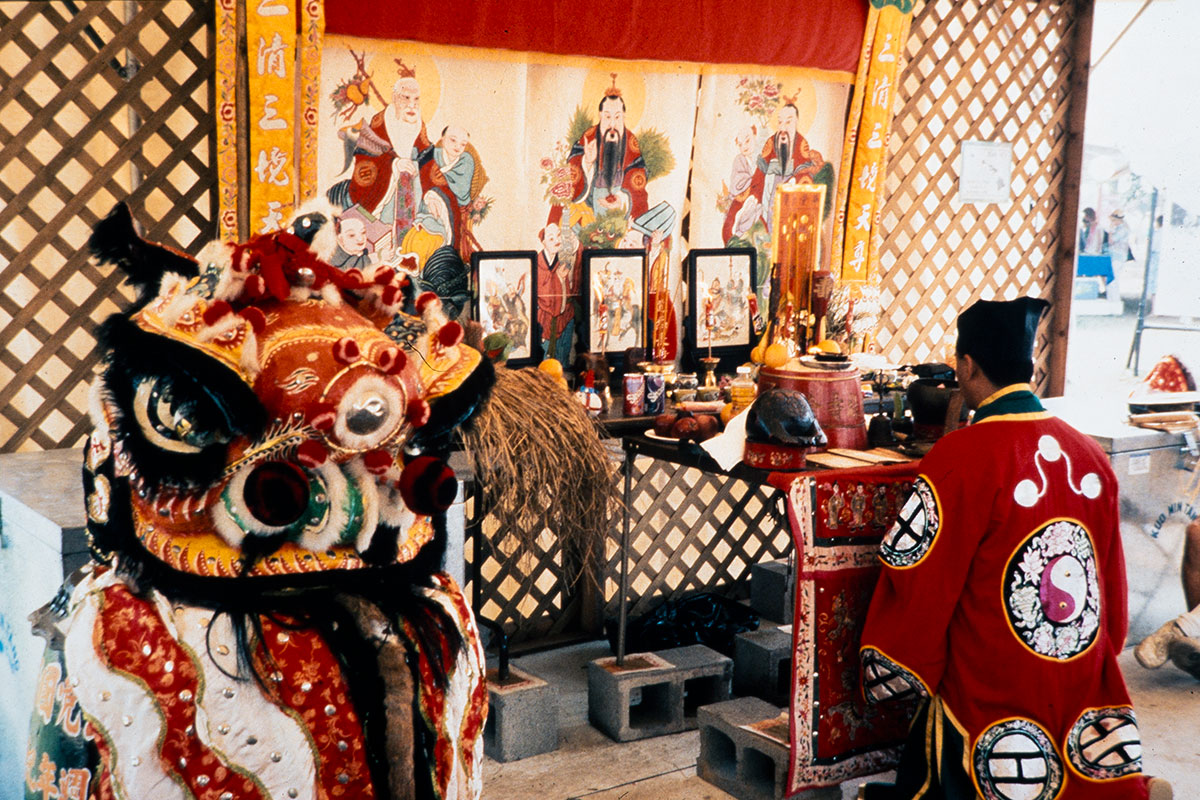The Smithsonian Center for Folklife and Cultural Heritage will develop a Smithsonian Folklife Festival program focused on contemporary religious practice in the United States. It is being made possible by nearly $1.5 million grant to the Smithsonian Institution from Lilly Endowment Inc.
The grant is one of four being made to the Smithsonian through Lilly Endowment’s Religion and Cultural Institutions Initiative. The national initiative is designed to help museums and other cultural institutions foster greater public understanding about religion and lift up the contributions of people of all faiths and diverse religious communities.
From 2021 through 2023, the Folklife Festival will present Creative Encounters: Living Religions in America, a multifaceted program examining the diverse tapestry of religious communities and experiences in our country today. The signal event will be the 2022 Festival, bringing together Buddhists, Christians, Hindus, Jews, Muslims, Sikhs, followers of Native American and African-inspired religions, and devotees of Humanism and other ethical traditions on the National Mall in Washington, D.C., and online.
While focusing on how these communities coalesce in the United States, we will explore how they relate to, influence, and are influenced by their counterparts around the globe. As usual, the Festival program will include narrative sessions, music and dance performances, interactive workshops, processions, cooking demonstrations, and more. The Festival is tentatively scheduled for June 22 to July 3, 2022.
“With support from Lilly Endowment, the Festival will host a national conversation about the role of lived religions in American life, whether in the creative expressions of communities of praise or in the public square,” said Michael Atwood Mason, director of the Center for Folklife and Cultural Heritage, which produces the Festival.
Lilly Endowment awarded grants to the Smithsonian totaling $13.5 million through the initiative. It has previously supported Smithsonian programs on religion and culture that include the establishment of a Center for the Study of African American Religion at the National Museum of African American History and Culture. Lilly Endowment also provided funding in 2015 for a curator of American religious history at the National Museum of American History.
“Museums and cultural institutions are trusted organizations and play an important role in teaching the American public about the world around them,” said Christopher Coble, Lilly Endowment’s vice president for religion. “These organizations will use the grants to help visitors understand and appreciate the significant impact religion has had and continues to have on society in the United States and around the globe. Our hope is that these efforts will promote greater knowledge about and respect for people of diverse religious traditions.”
Lilly Endowment launched the Religion and Cultural Institutions Initiative in 2019 and awarded planning grants to organizations to help them explore how programming in religion could further their institutional missions. These grants will assist organizations in implementing projects that draw on their extensive collections and enhance and complement their current activities.
About Lilly Endowment Inc.
Lilly Endowment Inc. is an Indianapolis-based private philanthropic foundation created in 1937 by J.K. Lilly, Sr. and his sons Eli and J.K. Jr. through gifts of stock in their pharmaceutical business, Eli Lilly and Company. Although the gifts of stock remain a financial bedrock of the Endowment, it is a separate entity from the company, with a distinct governing board, staff and location. In keeping with the founders’ wishes, the Endowment supports the causes of community development, education, and religion and maintains a special commitment to its founders’ hometown, Indianapolis, and home state, Indiana. The Endowment also funds significant programs throughout the United States, especially in the field of religion. While the primary aim of its grantmaking in religion focuses on strengthening the leadership and vitality of Christian congregations in the United States, the Endowment also seeks to foster public understanding about religion and lift up in fair, accurate and balanced ways the contributions that people of all faiths and diverse religious communities make to our greater civic well-being.
About the Smithsonian Center for Folklife and Cultural Heritage
The Center for Folklife and Cultural Heritage uses the power of culture to increase understanding, strengthen communities and reinforce our shared humanity through rigorous research, educational programming and community engagement. Through the Smithsonian Folklife Festival, Smithsonian Folkways Recordings, exhibitions, documentary films and videos, symposia, publications and educational materials, the center works to sustain traditional and expressive culture such as music, language and craft in a wide variety of locations around the world.
About the Smithsonian Folklife Festival
The Smithsonian Folklife Festival, inaugurated in 1967, honors contemporary living cultural traditions and celebrates those who practice and sustain them. Produced annually by the Smithsonian’s Center for Folklife and Cultural Heritage in partnership with the National Park Service, the Festival has featured participants from all fifty states and more than one hundred countries.


